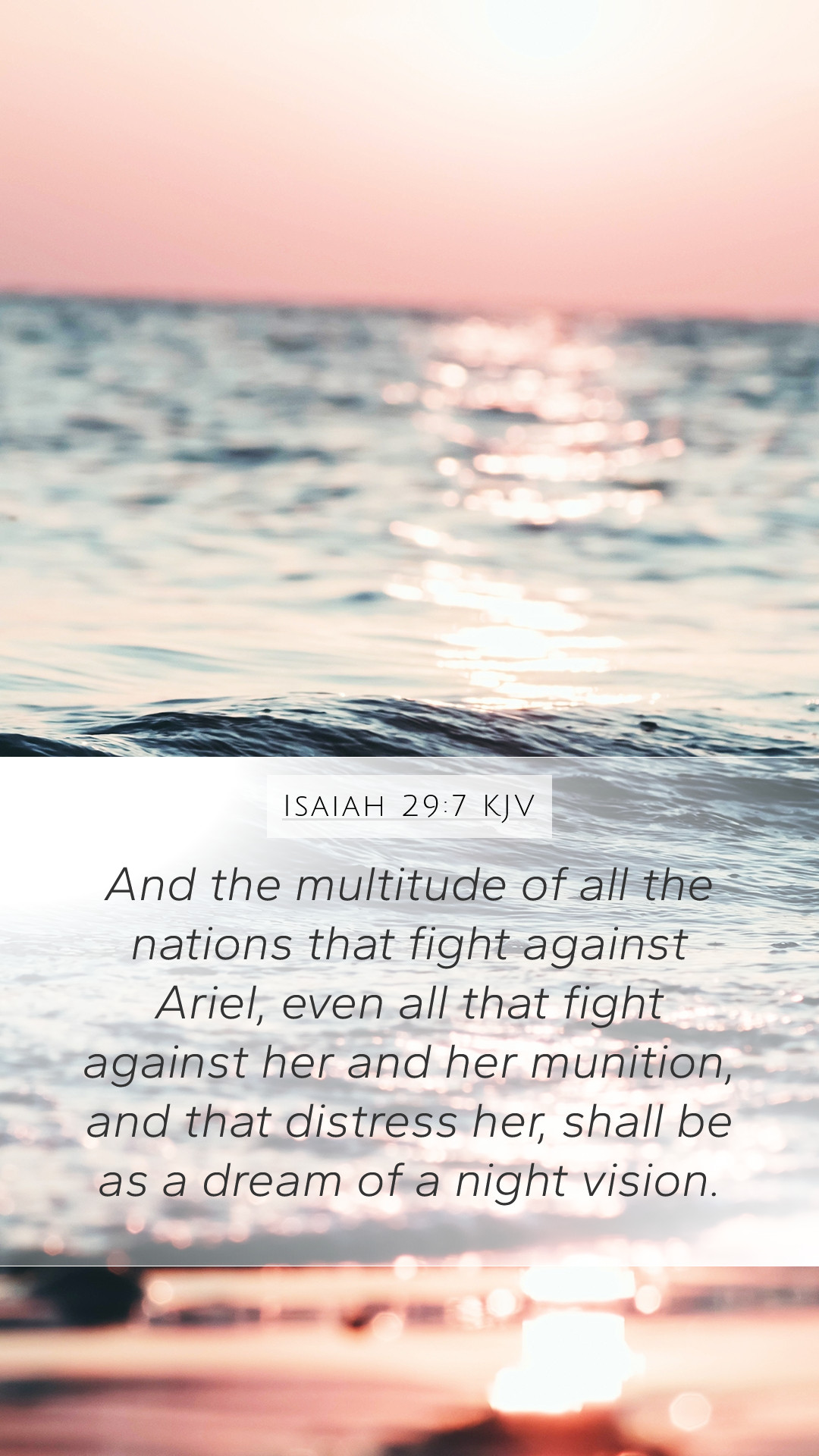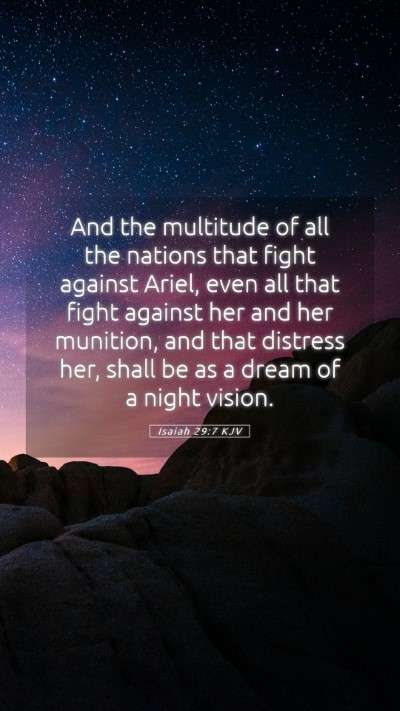Understanding Isaiah 29:7 - A Bible Verse Commentary
In this analysis of Isaiah 29:7, we will explore the rich meanings and interpretations derived from reputable public domain commentaries, including those by Matthew Henry, Albert Barnes, and Adam Clarke. This verse encapsulates profound truths about the consequences of judgment and the futility of opposition against divine will.
Bible Verse
Isaiah 29:7: "And the multitude of all the nations that fight against Ariel, even all that fight against her and her munition, and that distress her, shall be as a dream of a night vision."
Summary of Meaning
This verse refers to God’s assurance of protection over Jerusalem, symbolized by the name "Ariel," meaning "Lion of God." It portrays a prophetic vision where nations that oppose Israel will be rendered powerless, like a fleeting dream. The context of this verse is to emphasize God’s sovereign control over nations and His plans for His people.
Commentary Insights
Insights from Matthew Henry
Matthew Henry emphasizes the pointlessness of the nations' opposition against God's chosen city. He notes that their efforts are likened to a dream, highlighting the transient and ineffective nature of their attacks. Henry reflects on the ultimate futility of human power when set against divine purpose, reinforcing that those who rise against God’s people are guaranteed defeat.
Insights from Albert Barnes
Albert Barnes interprets the "dream of a night vision" as a metaphor for the illusory nature of the nations' confidence in their strength. He adds that just as dreams vanish upon awakening, so too will the threats posed by these nations. Barnes presents the imagery to stress God's sovereignty and the inevitable downfall of those who seek to disrupt His divine plan.
Insights from Adam Clarke
Adam Clarke broadens the historical context, suggesting that the “multitude of nations” refers to various kingdoms that attempted to invade or besiege Jerusalem. He notes that the distress they cause is temporary, as God intends to protect His people. Clarke also brings attention to the literary technique used in this verse as a way of illustrating the lack of permanence in human conflict against the eternal will of God.
Theological Themes
- Divine Protection: The verse assures believers that God actively defends and shields His people from external threats.
- Sovereignty of God: It emphasizes God’s ultimate authority over nations and their plans, showcasing that no opposition can outprevail His purposes.
- Temporary Nature of Human Efforts: The metaphor of a fleeting dream encapsulates the transitory outcomes of human ambitions, especially when opposed to the divine.
Practical Applications
For individuals and Bible study groups seeking to apply the truths found in Isaiah 29:7, consider the following:
- Confidence in God’s Protection: Trust in God's promises of safety amidst life's challenges and opposition.
- Understanding the Weight of Prayer: Recognize that prayers can influence outcomes against adversities, as God works through faith.
- Hope in Divine Justice: Trust that God sees every injustice and will ultimately bring about justice and restoration for His people.
Related Bible Cross References
- Psalm 2:1-4: Illustrates the futility of nations plotting against the Lord.
- Isaiah 31:1: Warns against relying on human strength rather than divine assistance.
- 2 Kings 19:32-35: A prime example of God defending Jerusalem against an overwhelming enemy.
Conclusion
Isaiah 29:7 serves as a powerful reminder of God's unending sovereignty and protection over His people. For those involved in Bible study groups, online Bible study, or utilizing Bible study tools, this verse emphasizes the importance of interpretation and understanding Scripture through a lens of trust in God's power. It reveals themes relevant to spiritual warfare, divine assurance, and the transient nature of evil, thus providing significant Bible study insights for both individual and collective exploration.


